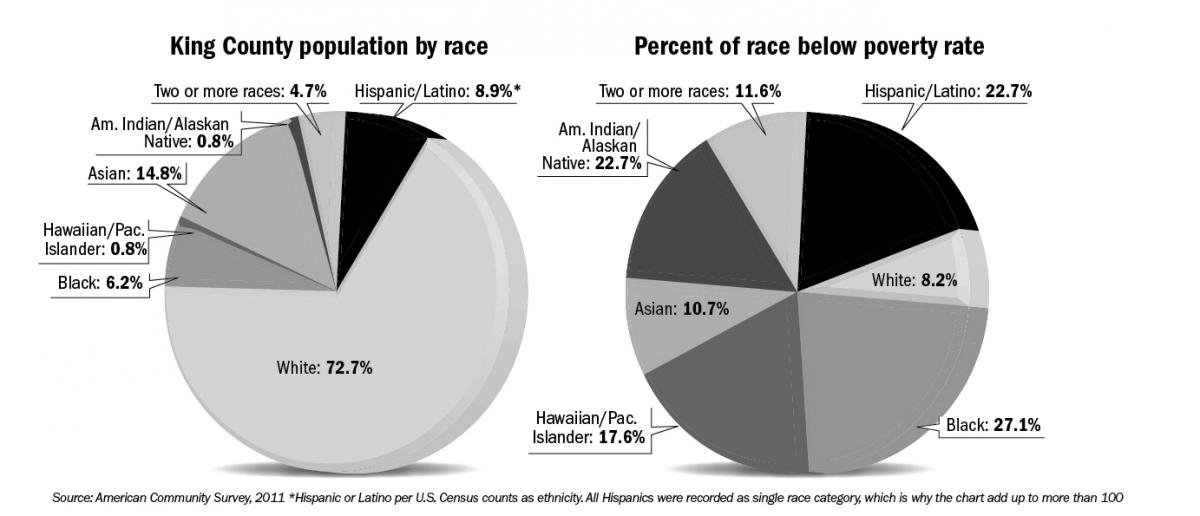The collaborative action project put on my group was centered around education of our topic (food accessibility) with the addition of giving back. Our event was a screening of the short documentary ‘Food Justice: A Growing Movement,’ with the bonus of a free chipotle burrito to those who donated a food item to the UW Food Pantry. This was not Plan A for our event, or Plan B even, this project taught us lessons in event organization and the realities around advertising and getting a guest speaker. Despite these setbacks, I still felt our event was a success, both in showing an educational film and contributing some to students in need.

King County’s racial makeup versus poverty by race. Who cannot afford food?
Our documentary looked at how food accessibility is both caused by economic status, and causes further economic problems. It also examined the outsized role race plays in whether a person lives in a food desert or not. I found these issues most interesting because of the correlation one can find between issues of food and so many of society’s other issues, be it health, education, employment, etc. West Oakland, featured in the movie, is more diverse than King County, but these issues are still heavily reflected in our own poverty rates, which in turn reflect food accessibility numbers.

Source: San Francisco Parks and Rec.
Alemany Farm is a San Francisco based urban farm shown as a necessity in the film. It is a perfect example of the strength of community in these areas and the importance of knowing how and where one’s food comes from. Professor Litfin’s contemplative practices have focused largely on thinking critically about this question of how we are getting our food. I think this documentary shows how importance that is, especially involving children in that process, like the kids who got to work on the People’s Grocery food truck. The degree to how local urban farms, like that of Alemany Farm, I feel, is essential to their community success. National and international food systems, evidently, have failed these groups, so responsibility has fallen to the shoulders of neighbors to come together and uplift a community.
